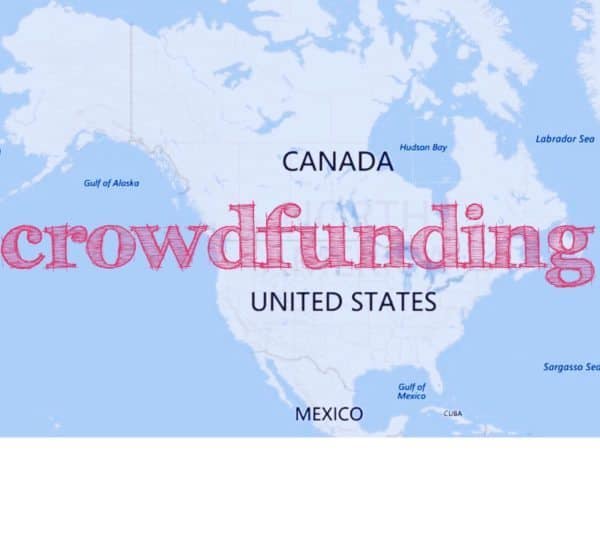As the S.E.C. continues to drag its feet on releasing final Title III crowdfunding rules, the intrastate crowdfunding movement shows no signs of slowing down. Here is a brief update as to the status of the enactment/use of intrastate crowdfunding exemptions in certain states.
Minnesota – Land of 10,000 Lake and Hopefully Intrastate Crowdfunding
 In January of this year, several Minnesota senators introduced Senate bill SF 138 (and related House bill HF328) in an effort to make Minnesota intrastate crowdfunding a reality. These bills come as a direct result of the efforts of Zachary J. Robins, Esq. and the consortium of entrepreneurs, business leaders, trade groups, and others making up the “MNvest” grassroots campaign.
In January of this year, several Minnesota senators introduced Senate bill SF 138 (and related House bill HF328) in an effort to make Minnesota intrastate crowdfunding a reality. These bills come as a direct result of the efforts of Zachary J. Robins, Esq. and the consortium of entrepreneurs, business leaders, trade groups, and others making up the “MNvest” grassroots campaign.
If you have not yet viewed the proposed, they admirably push the envelope in terms of what has been currently enacted in other states. First and foremost, the proposed MNvest bill allows issuers to raise up to a maximum of $5,000,000 if they have provided independently audited financials, or $2,000,000 if they have not provided such financials.
These limits are significantly higher than the typical $2,000,000/$1,000,000 maximum respective limits in most enacted states. The proposed MNvest bill also allows for a $10,000 maximum investment per non-accredited investor (per issuer) which is double that of the corresponding $5,000 maximum investment limit per non-accredited investor present in the majority of the enacted state regulations (which are also typically a “per investor” versus a “per issuer” annual limitation). There are several other novel provisions taken in this bill which are beyond the scope of this article.
To date, the proposed MNvest bill has gotten significant support from several Minnesota Senators, Representatives and other legislators on both sides of the isle. The MNvest movement however, has hit somewhat of a roadblock in the form of a letter from Mike Rothman, Commissioner of the Minnesota Department of Commerce, addressed to Senator Bonoff regarding Mr. Rothman’s concerns about the current iteration of the proposed MNvest bill. In his letter, Commissioner Rothman outlines several concerns about the proposed MNvest bill including, among others, that the maximum offering and investment limits are “too high,” and that the current rules lack disqualification for “bad actors.”
Mr. Rothman makes it clear that “[a]s currently drafted, the Commerce Department cannot support this legislation.” That being said, he goes on to say that “[t]he Commerce Department is interested in working to help [the proposing legislators] find a balance between the need to protect Minnesota investors from undue risk and loss of their money with the promise this new model potentially offers small businesses.”
Clearly there is work that needs to be done to gain the support of the commerce department but at least the door appears to be open to make that happen. Knowing Zachary Robins personally, I have faith that he and the other members of the MNvest team will find a way to find the balance Mr. Rothman is looking for.
Arizona – New Kid On The Block
 Last week Arizona officially became the most recent state to propose intrastate crowdfunding regulations when Representative Jeff Weninger, and Senator David Farnsworth, introduced Senate bill SB1450 (and related House bill HB2591). The proposed rules are, in terms of material provisions, substantially similar to a majority of the enacted and other proposed intrastate exemptions. They allow for issuers to raise up to a maximum of: $2,500,000 if they provide independently audited, GAAP based, financials, or $1,000,000 if no such financial statements are provided. Also, similar to the MNvest bill, the proposed Arizona bill also allows for a $10,000 maximum investment per non-accredited investor, per issuer.
Last week Arizona officially became the most recent state to propose intrastate crowdfunding regulations when Representative Jeff Weninger, and Senator David Farnsworth, introduced Senate bill SB1450 (and related House bill HB2591). The proposed rules are, in terms of material provisions, substantially similar to a majority of the enacted and other proposed intrastate exemptions. They allow for issuers to raise up to a maximum of: $2,500,000 if they provide independently audited, GAAP based, financials, or $1,000,000 if no such financial statements are provided. Also, similar to the MNvest bill, the proposed Arizona bill also allows for a $10,000 maximum investment per non-accredited investor, per issuer.
One unique aspect of the proposed Arizona bill is the express right of an investor to cancel their commitment, upon notice delivered to the issuer:
- (a) at any time prior to forty-eight (48) hours before the expiration of the stated offering deadline; or
- (b) if the purchaser is notified of an earlier closing deadline, within seventy-two (72) hours of delivery of such notice.
It should also be noted that the proposed rules, for whatever reason, specifically exclude the use of the exemption by an issuer that is “an entity that would be an investment company but for the exclusions provided in the Investment Company Act of 1940.” Given that many real estate (and other companies) are set up by means of one or more holding companies that fall within the exclusions provided in the Investment Company Act, this would prohibit the use of this exemption by such companies. I am not sure whether this was intended or an oversight by the drafters but it is significant.
 The proposed Arizona rules are supported by, among others, the Arizona Small Business Association (ASBA) who helped in drafting the initial bill. Rick Murray, the current C.E.O. of the ASBA, was recently quoted as saying that the proposed Arizona bill “is truly a piece of legislation for true small businesses and it allows unaccredited investors to get into the investing game with local businesses.” If passed, crowdfunding offerings/investments made under the proposed exemption would be regulated by Arizona Corporation Commission. The Commission however, has not yet committed to supporting the proposed bill or even made any comment on the proposed rules (despite having members present during the initial drafting of the bill). Hopefully the supporters of the proposed bill will be able to find a way to obtain the Commission’s support in the near future as I am certain that such support will go a long way toward making the proposed rules a reality.
The proposed Arizona rules are supported by, among others, the Arizona Small Business Association (ASBA) who helped in drafting the initial bill. Rick Murray, the current C.E.O. of the ASBA, was recently quoted as saying that the proposed Arizona bill “is truly a piece of legislation for true small businesses and it allows unaccredited investors to get into the investing game with local businesses.” If passed, crowdfunding offerings/investments made under the proposed exemption would be regulated by Arizona Corporation Commission. The Commission however, has not yet committed to supporting the proposed bill or even made any comment on the proposed rules (despite having members present during the initial drafting of the bill). Hopefully the supporters of the proposed bill will be able to find a way to obtain the Commission’s support in the near future as I am certain that such support will go a long way toward making the proposed rules a reality.
D.C. – Off To The Races
 In early November 2014, the Washington D.C. Department of Insurance, Securities and Banking (DISB) published a set of proposed rules to create a D.C. Intrastate Exemption. After a brief comment period the final rules were made effective on October 24, 2014. Late last week the DISB announced that it officially authorized the first crowdfunding investment offering to be made under the D.C. Intrastate Exemption.
In early November 2014, the Washington D.C. Department of Insurance, Securities and Banking (DISB) published a set of proposed rules to create a D.C. Intrastate Exemption. After a brief comment period the final rules were made effective on October 24, 2014. Late last week the DISB announced that it officially authorized the first crowdfunding investment offering to be made under the D.C. Intrastate Exemption.
The approved issuer is “Prequel, LLC,” a District-based subsidiary of “EquityEats,” also a District-based entity. In the proposed offering, Prequel has been authorized to offer and sell $200,000 of its “Class B” membership interests to D.C. residents, with a minimum investment amount of $100. The stated purpose of the offering is to supplement the funds currently held by the company (being $58,000) which will be used to fund the completion and staffing of a pop-up restaurant space at 918 F. Street NW, a former LivingSocial events space. It should be noted that, under the District’s rules, the full $200,000 of this offering must be raised before the company will receive any of the funds. If the offering is successfully however, the “Class B” securities holders will own a total of ten (10%) percent of the company.
The parent company, EquityEats, was launched in October of 2014 for with the goal of funding several district restaurant concepts by equity/debt investment from accredited and non-accredited investors. Accordingly, if the appropriately named “Prequel” offering is successful, it could signal more such offerings to come. This is good news not just for the District and local investors, but for evidencing the usefulness of intrastate offerings.
Colorado – Improving On Existing Regulations
 Colorado Representative, Pete Lee, recently submitted a draft Intrastate Crowdfunding Bill to the Colorado House of Representatives. The proposed rules are substantially similar to a majority of the enacted and other proposed intrastate exemptions; allowing issuers to raise up to a maximum of $2,000,000 if they provide independently audited financials, or $1,000,000 if no such financial statements are provided. They do however, allow for a $10,000 per non-accredited investor, per issuer, annual maximum investment limit like that proposed under the newer Arizona and Minnesota rules.
Colorado Representative, Pete Lee, recently submitted a draft Intrastate Crowdfunding Bill to the Colorado House of Representatives. The proposed rules are substantially similar to a majority of the enacted and other proposed intrastate exemptions; allowing issuers to raise up to a maximum of $2,000,000 if they provide independently audited financials, or $1,000,000 if no such financial statements are provided. They do however, allow for a $10,000 per non-accredited investor, per issuer, annual maximum investment limit like that proposed under the newer Arizona and Minnesota rules.
What makes this new bill so unique is the fact that, under § 11-51-304(6) of the Colorado Securities Act and the corresponding rule Rule 51-3.3, intrastate crowdfunding appears to be currently permitted up to $1,000,000 in any twelve (12) month period. I am not a Colorado licensed attorney but the forgoing statutes seem pretty clear on this point, though they are silent on the use of general solicitation. Perhaps my reading of the statutes is incorrect and the proposed regulation is needed to facilitate intrastate crowdfunding. This may explain why the proposed bill specifically makes note that “[c]urrent securities law restricts businesses’ ability to raise capital through crowdfunding, which is the raising of money on-line through small contributions from a large number of investors. ”On the other hand, maybe Representative Lee’s bill is simply intended to improve on the existing rule by increasing the maximum offering limit and clarifying other provisions of the exemption such as per investor annual investment limits. If the latter, it does represent a significant improvement on the existing regulations.
 The proposed bill is already seeing some criticism from an active crowdfunding group, ColoradoCrowdfunding.org, and its current manager Ray Burrasca. Mr. Burrasca, who is employed at the Denver-based investment firm of Windom Peaks Capital, recently published an article on Linked in expressing his views on intrastate crowdfunding rules and what he feels are the issues with existing and proposed regulations. In respect to the proposed Colorado Bill, Mr. Burrasca was quoted as saying that the it was not bad;
The proposed bill is already seeing some criticism from an active crowdfunding group, ColoradoCrowdfunding.org, and its current manager Ray Burrasca. Mr. Burrasca, who is employed at the Denver-based investment firm of Windom Peaks Capital, recently published an article on Linked in expressing his views on intrastate crowdfunding rules and what he feels are the issues with existing and proposed regulations. In respect to the proposed Colorado Bill, Mr. Burrasca was quoted as saying that the it was not bad;
“[B]ut it fails to address, as both the prior Title III federal attempt and the various other states’ attempts at crowdfunding have failed to address, the two most basic issues that confront and frighten investors (especially unaccredited investors, to whom our proposed bill is, and all of the other federal and state solutions previously adopted are, directed): risk of loss and lack of liquidity”.
Whatever the reason for the new bill, it will be certainly be interesting to see if it gains traction. Particularly in light of the criticisms put forth by, what appears to be, one of the State’s biggest crowdfunding advocate groups.
 Anthony Zeoli is an experienced transactional attorney with a national practice. Specializing in the areas of securities, commercial finance, real estate and general corporate law, his clients range from individuals and small privately held businesses to multi-million dollar entities. Mr. Zeoli is also an industry-recognized crowdfunding and JOBS Act expert who, most recently, has drafted a bill to allow for an intrastate crowdfunding exemption in Illinois, a copy of which can be found on his website: IllinoisCrowdfundingNow.com. Anthony is also currently actively involved with the entrepreneurship program at the University of Illinois at Chicago as both a mentor and a student advisor and is an active advisory board member of the New York Distance Learning Association (NYDLA).
Anthony Zeoli is an experienced transactional attorney with a national practice. Specializing in the areas of securities, commercial finance, real estate and general corporate law, his clients range from individuals and small privately held businesses to multi-million dollar entities. Mr. Zeoli is also an industry-recognized crowdfunding and JOBS Act expert who, most recently, has drafted a bill to allow for an intrastate crowdfunding exemption in Illinois, a copy of which can be found on his website: IllinoisCrowdfundingNow.com. Anthony is also currently actively involved with the entrepreneurship program at the University of Illinois at Chicago as both a mentor and a student advisor and is an active advisory board member of the New York Distance Learning Association (NYDLA).


